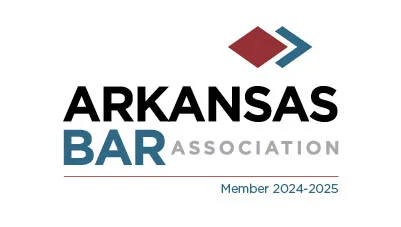Probate
Call us Today to Get Started
Understanding the Probate Process in Arkansas
When a person passes away, their assets must be disbursed according to their estate plan and, when applicable, state laws and probate. At the Gregory Law Firm, PLLC, our probate lawyer in Arkansas helps executors of Wills or beneficiaries of an estate through the probate process. Starting with identifying estate assets and ending with the distribution of assets and inheritances to the beneficiaries. Contact us by either using the online form or calling us directly at (479) 373-1800 to schedule a consultation and learn more.
Overview of Probate in Arkansas?
Probate is the process by which a deceased person’s assets and belongings, known as their estate, are passed on to their heirs and successors. It depends on your jurisdiction, but most matters related to wills, estates, conservatorships, and guardianships are handled by probate courts.
Both the probate process and outcomes can look very different, depending on whether the decedent had a valid Will at the time of death.
The Early Stages of Probate
The probate process begins when the decedent passes away. A petition is filed with the proper court to have probate opened. The next step is to identify the executor or personal representative of the decedent’s estate.
- If there is a Will, an executer will likely be named in it.
- If there is not a Will, a probate judge will nominate one.
Once the executor is approved or appointed by the court, the executor must:
- Notify the heirs;
- Publish notice for any creditors;
- Take inventory of the estate (e.g. bank accounts, retirement accounts, stocks and bonds, real estate, personal effects); and
- Secure all assets.
How probate proceeds depends primarily on whether there is a Will or not.
Probate with a Will
If the decedent died with a Will, the Will must be found, filed with the court, and authenticated before its terms are put into action. This process often involves a court hearing where parties named in the Will and parties not named but who would have inherited but for the Will are in attendance. During this hearing, an interested party may contest the Will.
If there are no challenges to the Will, the executor must first pay off all debts of the estate. Once creditors are paid, the executor distributes the remainder to the beneficiaries in accordance with the Will.
If the Will is challenged, then another hearing may be set. The challenger has the burden to prove the Will’s invalidity. Challenges are often based on allegations of undue influence, fraud, or misrepresentation. Challenges are also brought forward when there is believed to be another Will invalidating the Will offered to probate court.
If the court decides the Will is valid, the executor can pay debts, bills, and applicable taxes, and distribute assets. If the court decides the Will is invalid, it will apply the state’s intestacy laws. On the other hand, if the court determines the other Will is valid, it will allow the executor to apply the valid Will (as opposed to the invalid Will).
Probate without a Will
If there is no Will, the decedent is said to have died intestate. This does not mean their assets will not be inherited, it just means their property will pass to their heirs through their state’s intestacy laws.
Once the executor has located all the decedent’s assets and notified and paid the creditors, the probate judge will apply the state’s laws of intestacy and distribute the estate to the decedent’s heirs.
The End Stage of Probate
Once debt and bills are paid and the remaining assets are distributed, the executor will submit receipts and records of everything to the court. At that time, the executor will ask the court to close the estate and release the individual from the role of executor.
Do You Need a Probate Lawyer in Arkansas?
Whether you need a probate lawyer depends on how well the estate plan was set up. Regardless, a probate lawyer offers important services that can help speed up the probate process. A probate lawyer can help with the:
- Collection of proceeds from life insurance policies
- Identification and securing of estate assets
- Appraisals for the decedent's real property
- Payment of bills, debts, and applicable taxes
- Resolution of any income or estate tax issue
- Preparation and filing of all documents required by a probate court
- Management of the estate checking account
- Transfer of assets to beneficiaries
By providing a standardized set of rules and guidelines for commercial transactions, the UCC helps to promote efficiency and consistency in business dealings across different states. It also provides businesses with a clear legal framework for entering into and enforcing contracts, which helps to reduce the risk of disputes and other legal problems.
Why Choose Gregory Law Firm
- Local Expertise: Our deep understanding of Northwest Arkansas's legal landscape ensures that we provide relevant and effective counsel.
- Personalized Attention: We prioritize building strong relationships with our clients, offering tailored solutions to their legal challenges.
- Experienced Attorney: Our legal team brings a wealth of knowledge and a track record of success across various practice areas.
- Community Commitment: We are invested in the well-being of the communities we serve, participating in local events and supporting community initiatives.

Contact Us
If you are in need of legal assistance in Benton or Washington County, or anywhere in the State of Arkansas, Gregory Law Firm, PLLC. is here to help. Our dedicated team is ready to provide you with the guidance and representation you deserve.
- (479) 373-1800
- 1025 S. Maxwell St., Suite A, Siloam Springs, AR 72761
- Monday-Thursday: 9:00 a.m. - 5:00 p.m.
- Friday: 9:00 a.m. - 12:00 p.m.







The Gregory Law Firm, PLLC is Here for You
At the Gregory Law Firm, PLLC, we focus on Business Law, Business Formation, Probate, Wills and Trusts, Real Estate Law, Estate Planning Law, Contracts, and Family Law and we are here to listen to you and help you navigate the legal system.
